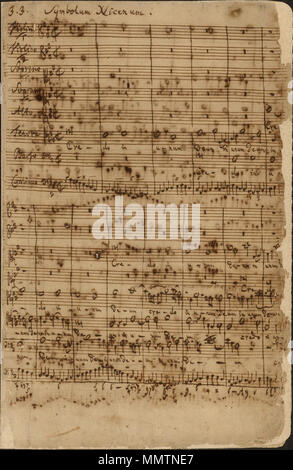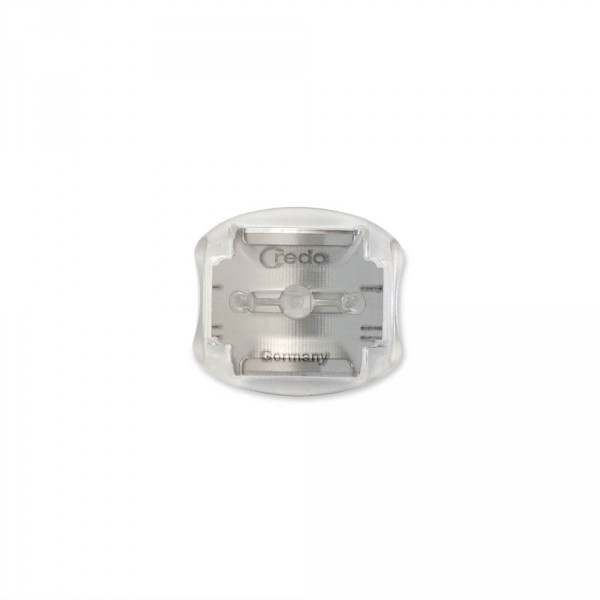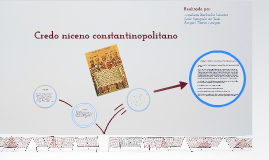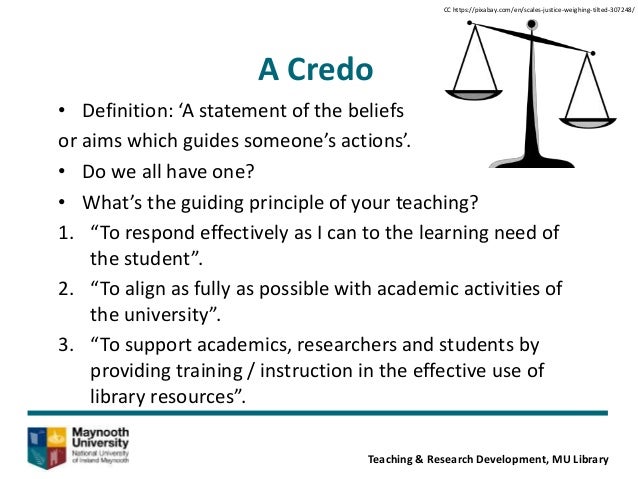$ 0.079 -1.49%
Credo (CREDO) Rank 10526
| Mkt.Cap | $ 0.00000000 | Volume 24H | 0.00000000CREDO |
| Market share | 0% | Total Supply | 0.00000000CREDO |
| Proof type | N/A | Open | $ 0.08 |
| Low | $ 0.08 | High | $ 0.08 |
Credo Reference database: How? Who? Why?

Credo is a Latin word, which the Oxford English Dictionary defines as "a statement of the beliefs or aims which guide someone's actions." In the corporate world, a credo is similar to a company's mission statement, its beliefs, principles, or purpose. A company's website likely will contain a prominently displayed mission statement, along with the firm's goals and objectives. In the best possible world, a company would use its credo to guide its actions. I believe in the Holy Spirit, the holy Catholic Church, the communion of saints, the forgiveness of sins, the resurrection of the body and life everlasting.

Developing a Credo Statement
What is Credo Reference and how can it help you?
Credo Reference is a library database that contains full-text dictionaries, encyclopedias, and other reference books that can be searched using key words. Use this database to find definitions, overview articles on a topic, or even pronunciation of medical terms!
If the Father has the power to communicate the Divine essence to the Holy Spirit (which is the same thing as saying that the Holy Spirit proceeds – in the Latin sense – from the Father), it follows that the Son must have exactly the same power, since Father and Son are the same in every respect except in their mutual relation. Denying this (by denying the Filioque), Catholic doctrine would argue, would make the Son subordinate to the Father, as in Arianism. It was the original 325 creed, not the one that is attributed to the second Ecumenical Council in 381, that was recited at the Council of Ephesus (The Third Ecumenical Council. The Council of Ephesus, p. 202).
What is the NCA credo for ethical communication?
CREDO Action Credo Mobile also has created an online network of more than 3 million activists who take actions both online and offline. On its website, the company states: Many companies, especially large ones, hire lobbyists to mold government policies and legislation to serve their financial interests.

The Oriental Orthodox and Assyrian churches use this profession of faith with the verbs in the original plural ("we believe"), but the Eastern Orthodox and Catholic churches convert those verbs to the singular ("I believe"). The Anglican and many Protestant denominations generally use the singular form, sometimes the plural. The filioque controversy arose from the addition of the clause ‘and the son’ to the original creed to form- I believe in the Holy Spirit, the Lord, the giver of life, who proceeds from the Father ⟨and the Son (Molloy,2012). This addition caused an implication of suggesting that the Holy Spirit is given to human beings through God the father and the son.
Instances of the former are in the Oxford Dictionary of the Christian Church and in the Roman Missal, while the latter is used consistently by the Faith and Order Commission. "Constantinopolitan Creed" can also be found, but very rarely. "The Orthodox Faith – Volume I – Doctrine and Scripture – The Symbol of Faith – Nicene Creed". because it was originally adopted in the city of Nicaea (present day İznik, Turkey) by the First Council of Nicaea in 325.[1] In 381, it was amended at the First Council of Constantinople, and the amended form is referred to as the Nicene or the Niceno-Constantinopolitan Creed. This was not reason enough for the division of the church regardless of the explanations that people may have given.

Which type of information will you find on Credo Reference?
A while back I ran across an article that talked about the significance of creating a Family Creed. A creed is basically a “system or statement of principles and beliefs.” It could also be considered sort of like a mission statement or series of statements that serve as a guide for how you want your family to live.
The outline of how to live life for the early Christians was clearly illustrated in the creeds that were guided by principles from the Bible. It is from these principles that they were able to come up with doctrines that could not be negotiated and those that could. Clarity was also essential to solve any conflicts that could arise in a church, as these statements outline or define the faith and what it stands for. They served as the mirror that the proponents would use to solve any confusions or misunderstanding. In other words, the creed served as a problem-solving manual, through which one could refer for clarification (Van Voorst, 2015).
Prayers for those who practice the faith of the Roman Catholic Church. "Creeds of Christendom, with a History and Critical notes. Volume II. The History of Creeds". In musical settings, particularly when sung in Latin, this Creed is usually referred to by its first word, Credo. Profession of Faith of the 150 Fathers refers specifically to the version of Constantinople 381 (traditionally, 150 bishops took part at the First Council of Constantinople).
What purpose does a creed serve?
Credo is Latin for, literally, "I believe," and originally meant a particular religious belief. Now it has the far broader meaning of any system of principles that guide a person or group.

It was hoped that by memorizing this summary of the faith, lay people without extensive theological training would still be able to recognize deviations from orthodox doctrines based on the Bible as interpreted in Christian tradition. The Eastern Orthodox Church accepts the Nicene Creed,[8][9] but does not use the Apostles' Creed or the Athanasian Creed. "Creed of Nicaea 325 – Greek and Latin Text with English translation". F. J. A. Hort and Adolf von Harnack argued that the Nicene creed was the local creed of Caesarea[14] (an important center of Early Christianity) recited in the council by Eusebius of Caesarea. - At the last General Synod (1909) they repeated their old fundamental principle that "the Holy Scriptures are our only rule of faith and practice"; but at the same time they declared that their interpretation of Scripture agreed substantially with the Nicene Creed, the Westminster and Augsburg Confessions, and the Thirty-nine Articles.
As a result of the disagreements on the Pope allowing the addition of that clause, there was division in the church to form the Eastern and the Western Christianity in the year 1054. Icon/Symbol of the Faith is the usual designation for the revised version of Constantinople 381 in the Orthodox churches, where this is the only creed used in the liturgy. Alexander and his supporters created the Nicene Creed to clarify the key tenets of the Christian faith in response to the widespread adoption of Arius' doctrine, which was henceforth marked as heresy. Creeds are statements that define the Christian belief most of which were formulated during the early times of Christianity before the church was split into the Orthodox and the Roman church.
- A company's website likely will contain a prominently displayed mission statement, along with the firm's goals and objectives.
- The creeds were crucial elements of the Christian faith, and it was important for all to have clarity, because through achieving clarity of the creed, one was able to understand the faith at a much deeper level.
- It was the original 325 creed, not the one that is attributed to the second Ecumenical Council in 381, that was recited at the Council of Ephesus (The Third Ecumenical Council. The Council of Ephesus, p. 202).
- If the Father has the power to communicate the Divine essence to the Holy Spirit (which is the same thing as saying that the Holy Spirit proceeds – in the Latin sense – from the Father), it follows that the Son must have exactly the same power, since Father and Son are the same in every respect except in their mutual relation.
Credo
What is an I Believe essay?
A creed is defined as any system of principles or beliefs, a statement of belief, or the ethical standards that guide one's life. In other words, a creed is a commitment to one's beliefs and values. Your homework assignment is to come up with your own personal creed. Think of what is important to you.
For example, the concept of the Trinity was one non-negotiable issue. Even though one could not understand how the Trinity was a representation of one God, they could not dispute with that or try to come up with a counter theory on the existence of God in the three aspects. Jesus Christ as the only source of forgiveness for the human sins was not negotiable. The Christianity itself was based on the existence of Jesus and so the only way of forgiveness.

I believe in God, the Father Almighty, Creator of Heaven and earth; and in Jesus Christ, His only Son, Our Lord, Who was conceived by the Holy Ghost, born of the Virgin Mary, suffered under Pontius Pilate, was crucified; died, and was buried. He descended into Hell; the third day He arose again from the dead; He ascended into Heaven, sitteth at the right hand of God, the Father Almighty; from thence He shall come to judge the living and the dead.

Profession of Faith of the 318 Fathers refers specifically to the version of Nicaea 325 (traditionally, 318 bishops took part at the First Council of Nicaea). Credo Mobile has been a vocal opponent of both the Afghanistan War of 2001 and the Iraq War that began in 2003, and it mobilized against the invasions and later to push for withdrawal of US troops from both countries. This partly led in 2009 to Fast Company magazine including CREDO in its top five "brave brands". Non-negotiable aspects were the primary truths on which the faith was built.

The 381 version speaks of the Holy Spirit as worshipped and glorified with the Father and the Son. The later Athanasian Creed (not used in Eastern Christianity) describes in much greater detail the relationship between Father, Son and Holy Spirit. The earlier Apostles' Creed does not explicitly affirm the divinity of the Son and the Holy Spirit, but in the view of many who use it, this doctrine is implicit in it.

How To Write A Personal Creed
An English translation of the Armenian text is added; English translations of the Greek and Latin liturgical texts are given at English versions of the Nicene Creed in current use. This version is called the Nicene Creed in Catholic Prayers, Creeds of the Catholic Church, Roman Catholic Archdiocese of Brisbane, etc. The version in the Church Slavonic language, used by several Eastern Orthodox Churches is practically identical with the Greek liturgical version. The Nicene Creed of 325 explicitly affirms the co-essential divinity of the Son, applying to him the term "consubstantial".
Dear God
The fact remains that both the Orthodox and the Western Christianity believe in the power of the Son of God. They both attest to the fact that he has power and that means that if he is the way of salvation, then he can also give the Spirit for he is supreme.
The creeds were crucial elements of the Christian faith, and it was important for all to have clarity, because through achieving clarity of the creed, one was able to understand the faith at a much deeper level. The creed was an actual declaration of what the faith stood for. If one did not understand the creed well then, they would not be fully aware of what they believe in. A creed by definition is a summary or statement of what one believes. It originates from the Latin credo meaning "I believe".[10] The purpose of a creed is to act as a yardstick of correct belief.[11] A creed is an epitome, not a full definition, of what is required for orthodoxy.
O my God, I firmly believe that Thou art one God, in three Divine Persons, the Father, the Son and the Holy Ghost; I believe that Thy Divine Son became man and died for our sins and that He will come to judge the living and the dead. I believe these and all the truths which the holy Catholic Church teaches, because Thou hast revealed them, Who canst neither deceive nor be deceived.
I believe in the Holy Spirit, the holy Catholic Church, the communion of saints, the forgiveness of sins, the resurrection of the body, and the life everlasting. Briefly, Arianism is a Trinitarian heresy that denies the divinity of the Son, the Second Person. It claims that the Son is subordinate to the Father, so much so that the Son is a mere creature. Orthodox (in the sense of non-heterodox) Trinitarian doctrine teaches that the Persons are distinct from each other only as regards their mutual relations.








